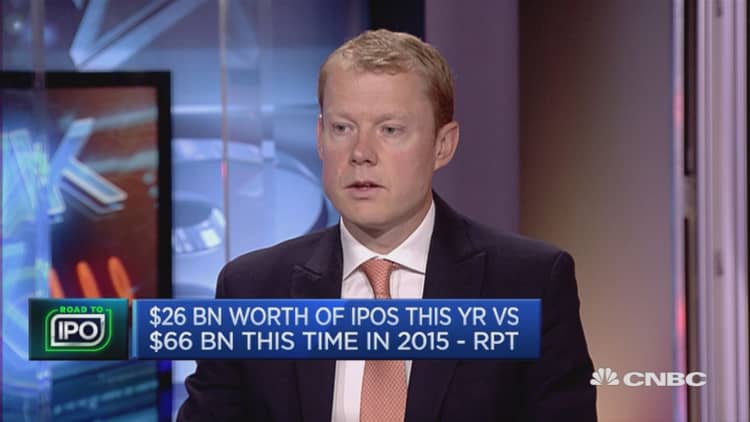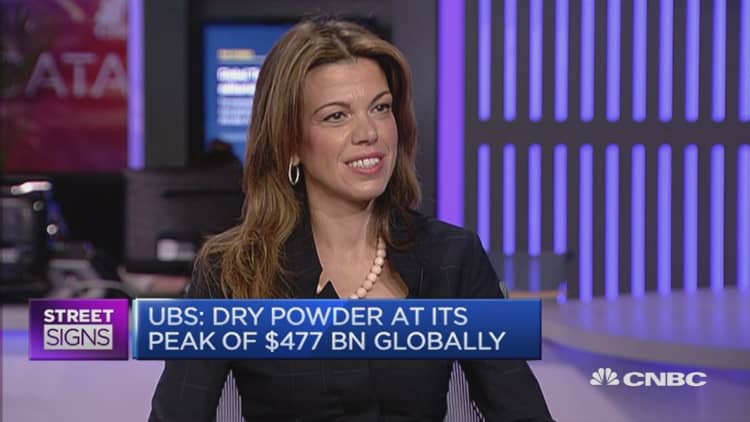
Private equity is "benefiting" from the growing regulatory creep on Wall Street. At least, so says one of the industry's senior statesmen.
"I do think we benefit from regulation," Josh Harris, co-founder and senior managing director of Apollo Global Management, said Tuesday at the Deutsche Bank Global Financial Services Conference in New York.
That's a far cry from how big banks on Wall Street might feel. Complying with numerous Washington agencies and a growing list of requirements from the Federal Reserve, including producing "living wills," has grown into a staffing and cost headache at most major banks.
Apollo Global, which is subject to less-stringent requirements than Wall Street banks, can buy other banks or insurance companies, Harris said, and take on lending businesses from which major banks have been "receding," he said during the question-and-answer portion of his talk at the event.
Read MoreIt's the end of Goldman Sachs as we know it
Specifically, he said, Apollo has been able to increase its lending business to borrowers willing to pay between 6 and 10 percent for loans.
But, Harris noted, there are parts of the private equity business that cannot escape the regulatory headaches big banks face.

Whereas Apollo is doing more lending that banks cannot, its business also faces challenges from how much less banks can lend to it for leveraged buyouts, thanks to post-crisis regulation in Washington.
The Treasury Department's Office of the Comptroller of the Currency and the Federal Reserve provided guidance to the firms they supervise in 2013, telling big banks to not provide private equity borrowers with excessive amounts of money to do deals. What they were trying to avoid are repeats of post-financial crisis disasters like TXU or Caesars, both bought by private equity investors and each levered to the gills, in terms of the debt each deal assumed ( would go on to file for bankruptcy protection).
Read More
And that means, now, that private equity firms can't borrow as much cash for big buyouts; instead, the debt-to-equity ratio for private equity firms like Apollo is closer to 50-50, Harris said. It wasn't always that way, especially in the years leading up to the financial crisis. Not being able to get debt might impact smaller private equity firms more; Apollo has $30 billion in funds it has raised to do deals.
Still, Harris happily hearkened back to his industry's headier days, when debt was easier to come across in the years leading up to the crisis.
"Literally every deal … was 80-20," Harris said during his presentation.


